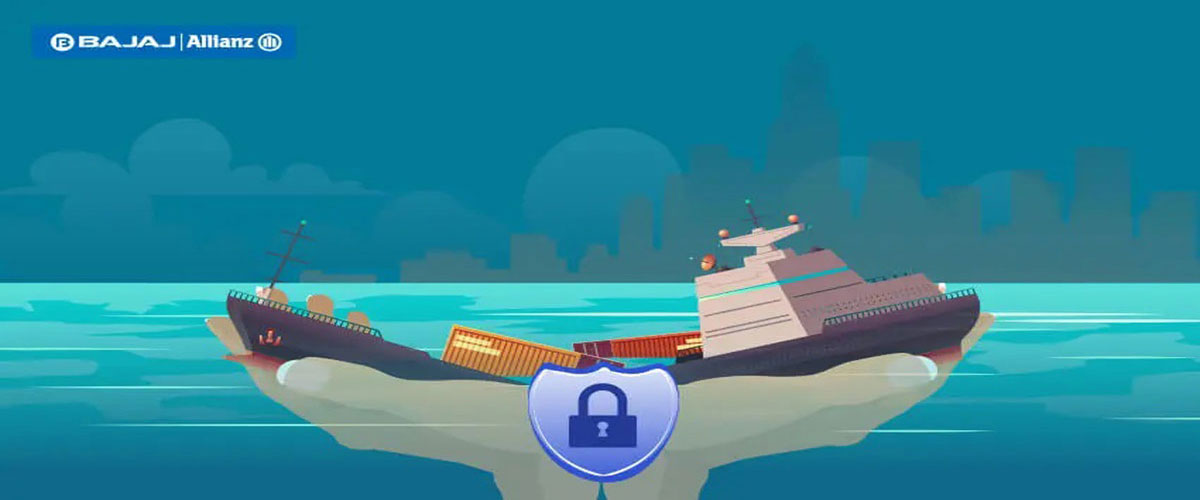Operating principles are the very reason why industries like banking, insurance, and other financial services have been able to survive across centuries. Principles govern their operations, which standardize their deliveries and make them consistent with interrelated parties and customers.
Marine insurance is no different. It can impact several industries in one go – sellers, distributors, traders, law enforcement, tax authorities, buyers, insurers, logistics companies, and several other entities. Hence, to facilitate a seamless lifecycle for every shipment, the industry has adopted principles of marine insurance.
What are the 5 Principles of Marine Insurance?
The generally used principles of marine insurance include six principles. But the principle of good faith is considered an essential mandate commonly agreed among all the parties involved. It states that when two parties, the insured and the insurer, agree, all the cargo details shall be provided with utmost honesty.
Along with the principle of good faith, here are the other five:
1. Indemnity
This principle differentiates the marine insurance policy from a speculative product for capital markets. For instance, a put or call contract can be used in the capital markets for both hedgings and for making profits. However, there are various
types of marine insurance plans specifically designed to protect against losses. Hence, the payable claims will never exceed the loss incurred by the insured entity.
2. Insurable Interest
This principle can be equated with the common phrase of 'skin in the game.' It means that the insurer must have some interest in the safe arrival of the goods at the end of the transit cycle. If the goods arrive on time and undamaged, the insured entity stands to benefit, and if they do not reach at their stipulated time in their described condition, the same entity stands to bear a loss. If the insured entity's loss or gain is not immediately borne, it should at least reasonably expect to bear or attain it soon. This way, the insurance cover protects the 'interests' of the insured entity.
3. Proximate Cause
If you get creative and think like a philosopher, you can practically establish some form of speculated causality between any two events. Using this, your insurance claim as an entity can be attributed to almost any reason, giving you an unreasonable advantage against the insurance company.
For example, you are sending cargo via a vessel to the Netherlands. On the way, some pirates attack the ship, and your cargo is stolen. However, your marine insurance policy covered only the loss caused by natural causes or damages. If the proximate cause principle did not exist, you could have stated that since the fog near the shore did not allow the authorities to see the pirates in time, the cargo was stolen because of a natural cause.
Hence, the proximate cause principle states that the insured entity will accept the nearest and most plausible cause for the damage in case one is incurred. On the other side of the trade, if that cause is covered in the insurance policy, the insurer will settle the claim and is bound by the same principle.
4. Subrogation
Subrogation is the follow-through principle for the indemnity principle. It limits the scope to profit from an insurance contract. After disposing of the damaged goods, the net amount exceeding the actual price of the goods post the claim must be returned to the insurer.
For instance, assume that you have an insurance of ₹5,00,000 on a particular cargo. It gets damaged in an accident on the vessel. Your insurer pays you ₹4,90,000 as per the policies stated in the claim. You sell the damaged goods for ₹20,000. When this amount is added with the claim amount, the total cash you received exceeds the goods' value by ₹10,000. Under the principle of subrogation, this amount must be returned to the insurer.
5. Contribution
Marine insurance often covers such complex transits that there might be an overlap between two insurers. It is not unfathomable to imagine two insurers insuring the same cargo under two separate jurisdictions or policies. If the cargo gets damaged and the claims are payable, the insurers are supposed to split the claim liabilities.
Understanding the five principles of marine insurance can help you understand and comply with your insurance contract more actively. Know more about our
commercial insurance policies on the Bajaj Allianz website.
FAQs
1. At what point can you report a breach of the principles of marine insurance becomes material?
Unlike bylaws, principles are agreed in binary terms – either you have adhered to them, or you haven't.
2. Who oversees the principles of marine insurance?
While the General Insurance Council of India has enlisted the principles, the moment you breach one, you would also be breaching the insurance contract in some form and hence make the matter legally enforceable. The insurer can take the case up in the court of law, as per the jurisdiction entailed in the insurance contract.
 Service Chat: +91 75072 45858
Service Chat: +91 75072 45858


